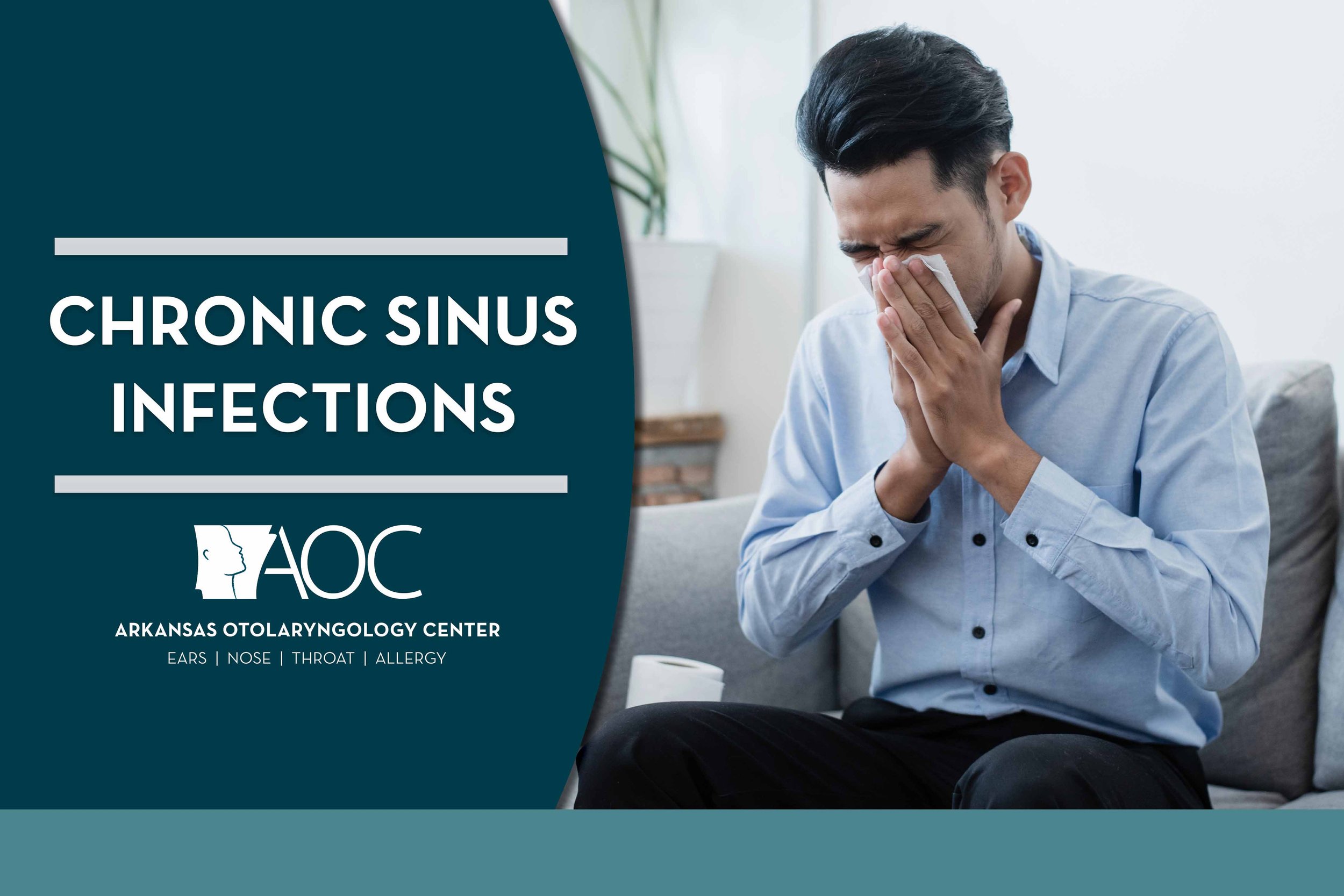Sinusitis
What is Sinusitis?
Sinusitis, often referred to as a sinus infection, is an infection that causes swelling of the tissue that lines the sinuses. These infections usually happen after a cold or an allergy flare-up. There are four types of sinusitis:
Acute Sinusitis - Caused by bacteria growing in the sinuses, acute sinusitis symptoms last less than four weeks and are relieved with the proper care.
Subacute Sinusitis - With subacute sinusitis, the infection does not get better with treatment at first and symptoms may last 4-8 weeks.
Chronic Sinusitis - Sinusitis is considered chronic if the swelling of the sinuses lasts longer than 8 weeks. Chronic sinusitis often happens when acute or subacute is poorly treated. It also may be caused by bacteria or fungus.
Recurrent Sinusitis - When you have 3 or more episodes of acute sinusitis in one year, it is called recurrent.
What are the symptoms of Sinusitis/Sinus Infection?
Symptoms of sinusitis almost always follow a cold that does not get better, or worsens after 7 to 10 days. Symptoms in older children and adults include:
Persistent cough, especially at night
Post nasal drip
Sore throat
Pressure-like pain behind the eyes, and/or tenderness of the face
Fever
Headache
Swelling of the face, especially around eyes
For younger children, symptoms of sinusitis include:
Runny nose lasting more than 7 to 10 days, drainage is typically yellow or green but can be clear
Cold or respiratory illness that begins to get better then comes back and is worse
Cough at night
Seek treatment right away if you have:
High fever
Significant facial pain and pressure
A change in vision
Neck stiffness
Shortness of breath
Swelling around eyes
Trouble thinking
How is Sinusitis/Sinus Infection Diagnosed:
Sinusitis is diagnosed mostly based on your symptoms; your healthcare provider will ask you a series of questions and perform a physical examination, checking your ears, nose and throat for swelling, drainage, and/or blockage. Sometimes, other tests are needed. These may include:
Sinus x-rays
Cultures from nose
Imaging exam, or CT scan
Blood tests
What is the treatment for Sinusitis/Sinus Infection?
Treatment of sinusitis will vary depending on the severity of your symptoms, your age, and your overall health and medical history. In less severe cases, sinusitis is treated with:
Decongestants
Increased intake of fluids
OTC cold and allergy medications
Nasal washes using saline
If symptoms do not improve after 10 days, or if symptoms are more severe (ie. facial swelling), your healthcare provider may prescribe an antibiotic or intranasal steroid spray.
How Can an ENT help with Chronic Sinusitis?
Patients who experience ongoing symptoms and do not respond well to traditional treatments should see an ENT specialist. Our expert team of ENT providers can diagnose chronic sinusitis by examining the patient, reviewing their medical history and ordering tests. Testing may include a nasal endoscopy, diagnostic imaging, allergy testing, and/or nasal and sinus cultures.
Treatment will depend on the cause of the chronic sinus infection and may include medications, allergy treatments, or sinus procedures. If allergy treatment is needed, we have an in-house allergist who can provide those treatments. If surgery is needed, we have an outpatient surgery center conveniently located at our clinic in Little Rock where we can perform the procedure. Learn more about our surgery center in the video below.
One thing that’s unique about AOC is that we offer an on-site surgery center where we can perform the majority of our procedures. Our surgery center gives our patients a convenient option for outpatient surgery without ever going to the hospital. We offer covered drop-off and pick-up areas with parking close by. Watch this video to tour our surgery center and see how we're able to provide a superior patient experience to our ENT and Allergy patients.

